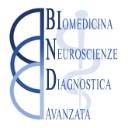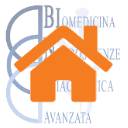Presentazione e Obiettivi formativi
Direttore del corso: Prof. Fabio Bucchieri
La Scuola di Dottorato in BIOMEDICINE, NEUROSCIENZE e DIAGNOSTICA AVANZATA (già Biomedicina and Neuroscienze) offre agli studenti, sin dal suo XXVI ciclo, la possibilità di intraprendere un dottorato di ricerca congiunto attraverso una partnership con il NEUROSCIENCE GRADUATE PROGRAM della University of Texas Medical Branch (Galveston , Texas, Stati Uniti)
L'obiettivo del programma di dottorato è formare scienziati con una vasta competenza nelle moderne tecniche sperimentali e una conoscenza completa della conformazione, struttura e funzioni del corpo umano, che utilizzeranno la loro esperienza per esplorare i meccanismi cellulari e molecolari coinvolti in vari funzioni e disturbi del corpo umano, compresi quelli del sistema nervoso.
Glistudenti del nostro programma di dottorato sono tenuti a perseguire carriere come ricercatori e / o insegnanti nel campo della biomedicina e delle neuroscienze in istituzioni accademiche, industria, organizzazioni biotecnologiche o enti governativi.
Al termine del corso di dottorato, tutti gli studenti presenteranno il proprio lavoro come tesi di dottorato in lingua inglese. Gli studenti con borsa di studio possono anche essere iscritti al Neuroscience Graduate Program presso l'UTMB.
I principali argomenti di ricerca sono: medicina rigenerativa e applicazioni terapeutiche delle cellule staminali; cambiamenti fisiopatologici indotti dallo stress nei tessuti umani; modificazione del differenziamento cellulare e del microambiente che portano all'invecchiamento e alla patogenesi delle malattie umane; identificazione di nuovi biomarcatori, comprese le vescicole extracellulari; sviluppo e sperimentazione di nuovi agenti terapeutici.
Link al corso di dottorato precedente: D003 Biomedicina e Neuroscienze
ACADEMIC OBJECTIVES
During the course, the students participate in educational activities, specifically designed for them and distinct from those offered in undergraduate and graduate degree programs. These activities also include attendance at specialized learning courses, participation in seminars, workshops, study days, or other courses offered by our University, including activities organized by the European Researchers' Charter Group of the University of Palermo.
In recent years, almost all of the specialized seminar activities in our PhD program have been delivered by highly qualified Italian or international experts from academia and research institutions.
The educational activities (see Attachment 1) provided in our PhD program are closely aligned with the research activities pursued in the three curricula. The goal is to train highly specialized researchers in the fields of biomedicine, neuroscience, and advanced diagnostics who can carry out their work at a national and international level as group leaders in public and private research institutions and in companies. Their training will provide them with skills to address and solve scientific and practical problems, particularly those related to changes in cell differentiation, tissue homeostasis, organ remodeling that lead to the onset of diseases, biomarkers, and advanced imaging techniques. The planning and organization document for the educational and research activities will be published on the PhD course website.
The curricula aim to specialize the research topics offered according to priority objectives that are consistent with the most advanced international research areas and those specific to the scientific disciplines of the professors affiliated with the PhD College.
Through experience in specialized laboratories, PhD students are provided with the tools necessary to develop innovative research projects. Moreover, they are encouraged to produce, where possible, interdisciplinary thesis work, often in collaboration with other institutions and on cross-cutting topics.
In addition to the specific training objectives of the PhD course, students will have access to common qualifying activities for all PhD courses, organized by the University of Palermo's Doctoral School, which is a member of the Council for Doctoral Education of the European University Association. In particular, the School promotes and coordinates the cross-disciplinary educational offerings, providing participants with interdisciplinary, multidisciplinary, and transdisciplinary training courses, as well as language and IT courses. It also offers activities in teaching, research management, understanding European and international research systems, promoting and disseminating research results, intellectual property, open access to research data and products, and the fundamental principles of ethics and integrity.
Link to previous PhD program: D003 Biomedicina e Neuroscienze








